In today's digital landscape, ensuring the security of sensitive information is more crucial than ever, especially when partnering with vendors. Companies need to understand the data protection measures in place to safeguard their valuable assets and maintain compliance with regulations. This article will explore key considerations for evaluating vendor data security practices and highlight best practices to mitigate risks. So, let's dive in and discover how you can enhance your organization's data protection strategy!
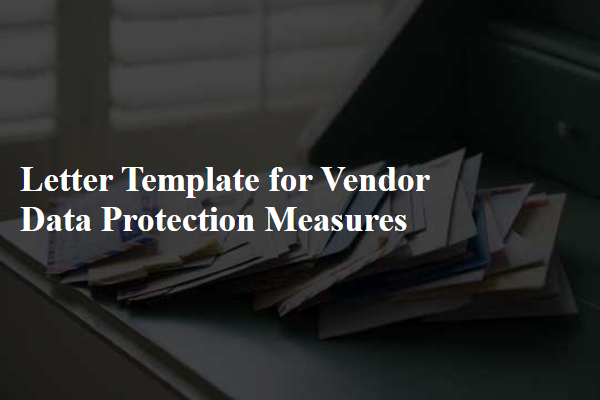
Data encryption and secure storage protocols
Data encryption plays a crucial role in the protection of sensitive information, particularly in vendor relationships involving customer data or proprietary information. Utilizing strong encryption standards, such as AES-256, ensures that data-at-rest and data-in-transit remains secure from unauthorized access, enhancing overall confidentiality. Secure storage protocols, including the implementation of access controls and regular audits, help maintain data integrity and prevent breaches. Organizations may employ cloud service providers with certifications like ISO 27001 or SOC 2, ensuring adherence to recognized security frameworks. In addition, the establishment of a robust data protection policy, compliant with regulations such as GDPR or HIPAA, can further reinforce these security measures, safeguarding critical information from increasing cyber threats.
Access control and authentication mechanisms
Effective access control and authentication mechanisms are essential for ensuring the security of sensitive vendor data. Access control systems, such as Role-Based Access Control (RBAC), limit user permissions based on job roles, which helps in reducing the risk of unauthorized access to confidential information. Multi-Factor Authentication (MFA) requires users to provide multiple verification methods (such as a password and a fingerprint) before gaining access, enhancing security layers. Additionally, logging and monitoring access activities can provide insights into potential breaches. Regular audits of access controls ensure compliance with regulations like GDPR (General Data Protection Regulation) and frameworks such as ISO 27001 (International Organization for Standardization), reinforcing the importance of safeguarding vendor data integrity.
Regular audits and compliance checks
Regular audits and compliance checks serve as essential components for vendor data protection measures, ensuring that sensitive information remains secure. These procedures typically occur annually or biannually, examining adherence to regulations such as the General Data Protection Regulation (GDPR) or the Health Insurance Portability and Accountability Act (HIPAA). During these evaluations, third-party vendors, which may include suppliers or service providers, undergo a thorough review of their security protocols, data handling practices, and incident response plans. The audit process often includes vulnerability assessments and penetration testing to identify potential security gaps, with findings documented in comprehensive reports. Compliance checks ensure that vendors implement necessary corrective actions in response to identified risks, fostering a culture of continuous improvement in data security across all operations.
Incident response and breach notification procedures
In the realm of vendor data protection measures, robust incident response protocols and breach notification procedures are essential components. An incident response plan outlines specific steps to be taken in the event of a data breach, including identification, containment, eradication, and recovery phases. Timely notification of breaches, ideally within 72 hours as mandated by regulations like the General Data Protection Regulation (GDPR), ensures that affected individuals can take necessary precautions. Information security teams must also conduct post-incident analysis to refine response strategies. Documentation of incidents, including nature, impact, and remedial actions taken, is crucial for compliance audits and improving overall security posture. Regular training simulations for staff on these procedures can significantly enhance readiness and minimize risks associated with data breaches.
Data retention and disposal policies
Effective vendor data protection measures are vital for ensuring compliance and safeguarding sensitive information. Data retention policies dictate the duration for which personal information, such as customer names and financial details from transactions, is stored by the vendor, adhering to legal requirements such as GDPR or HIPAA, which may specify retention periods of 6 months to 10 years. Disposal policies outline methods for securely eliminating data, including shredding physical documents and using software to overwrite electronic files, thereby preventing unauthorized access. Additionally, third-party audits may be conducted to assess these measures, ensuring that vendors maintain best practices in data security and adhere to specified standards like ISO 27001. Regular employee training and awareness programs further enhance the effectiveness of data protection protocols in safeguarding sensitive information.

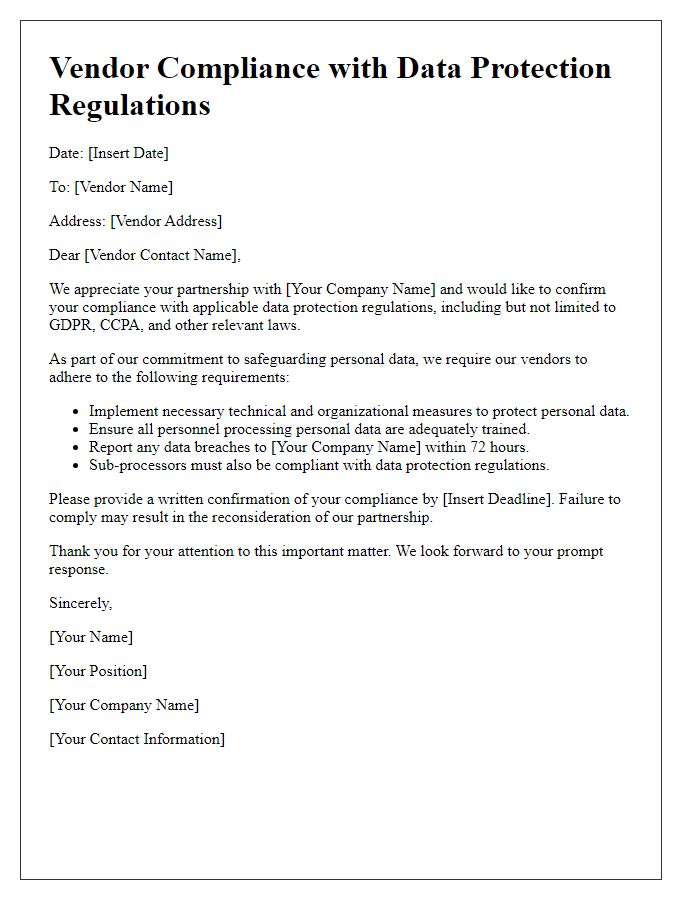
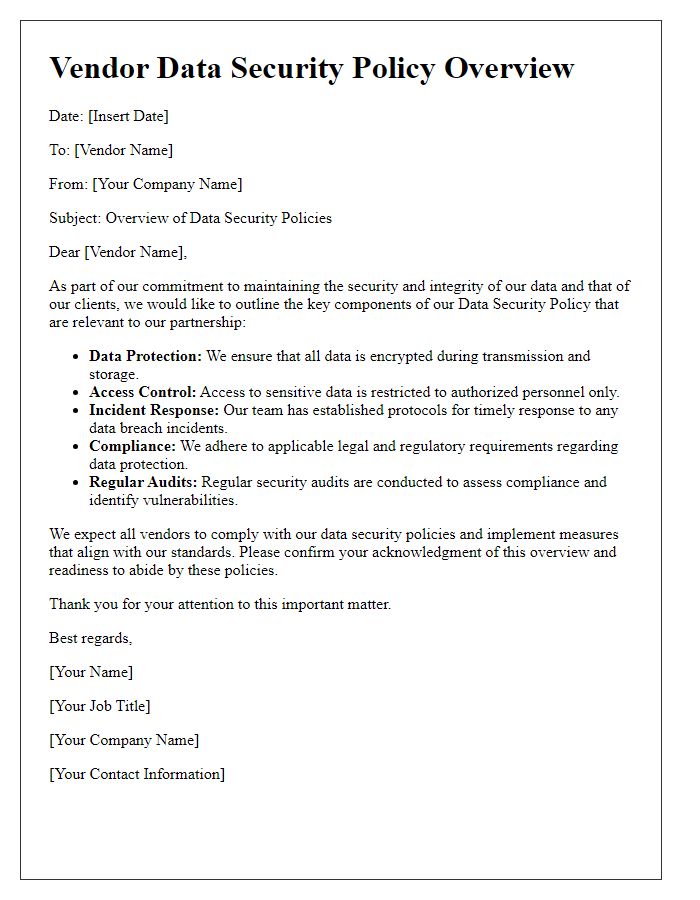
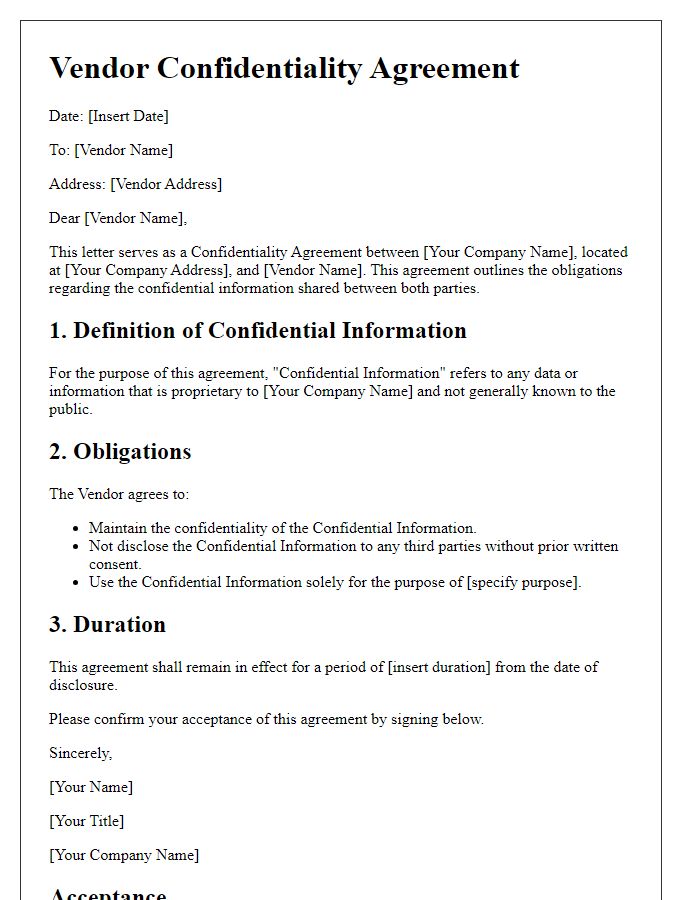
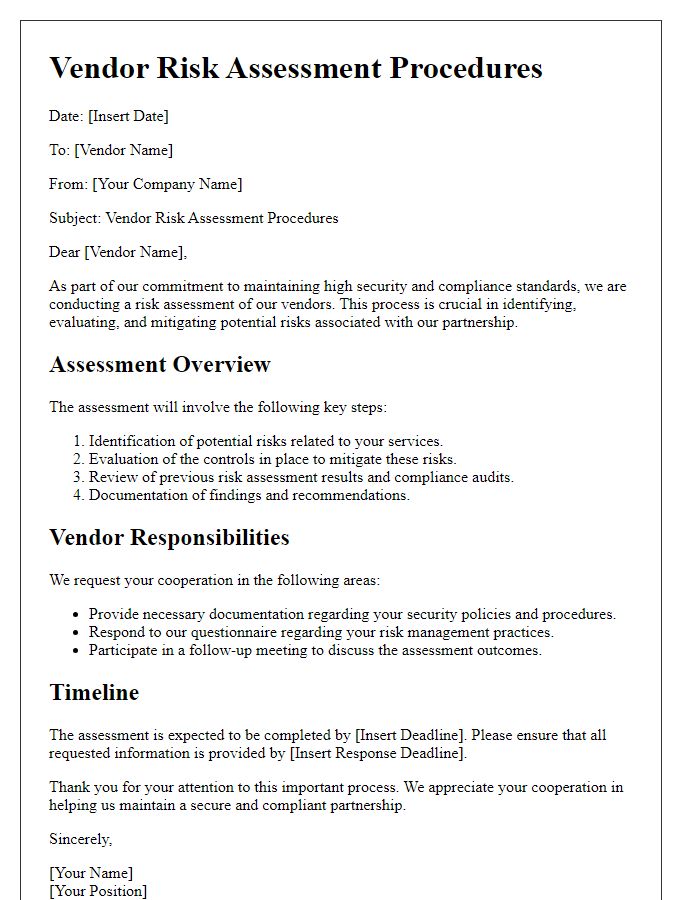
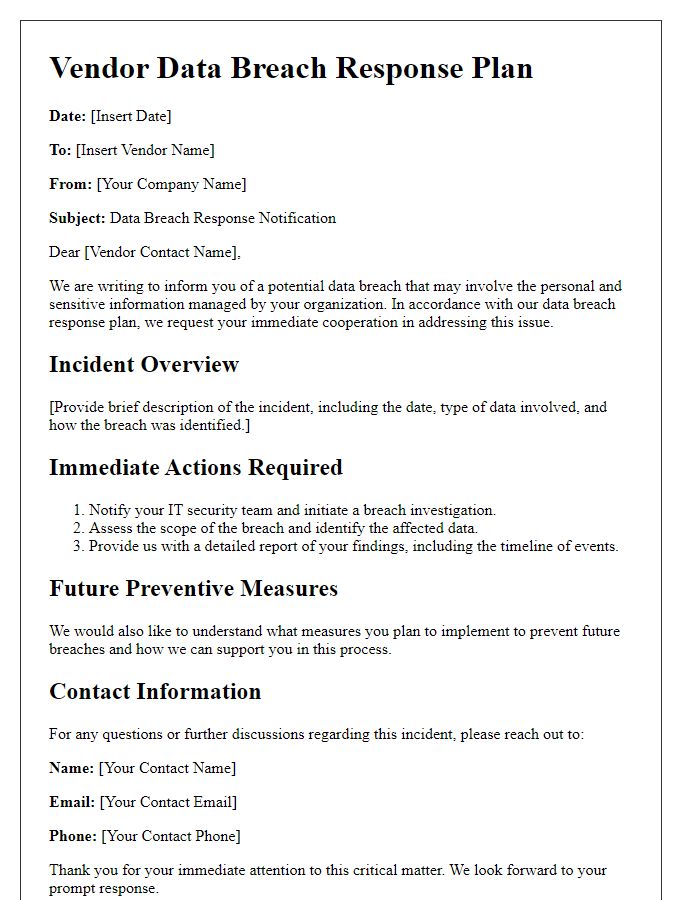
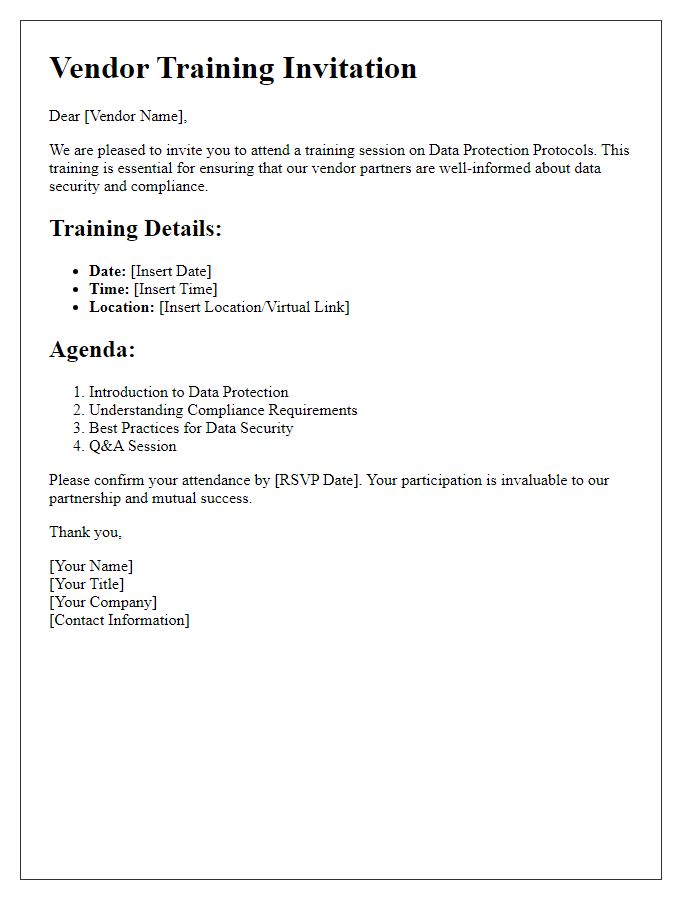
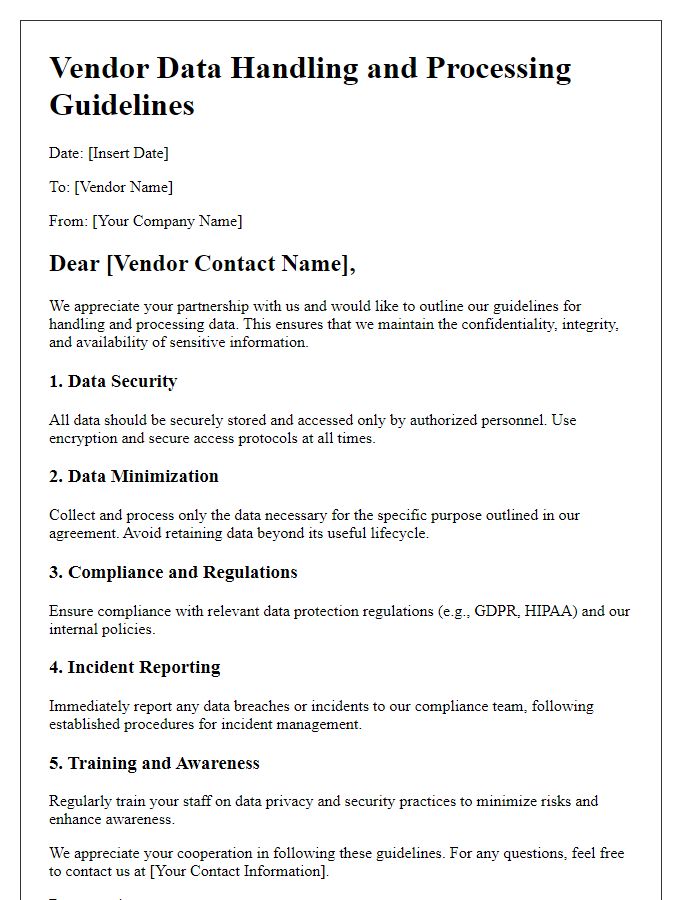
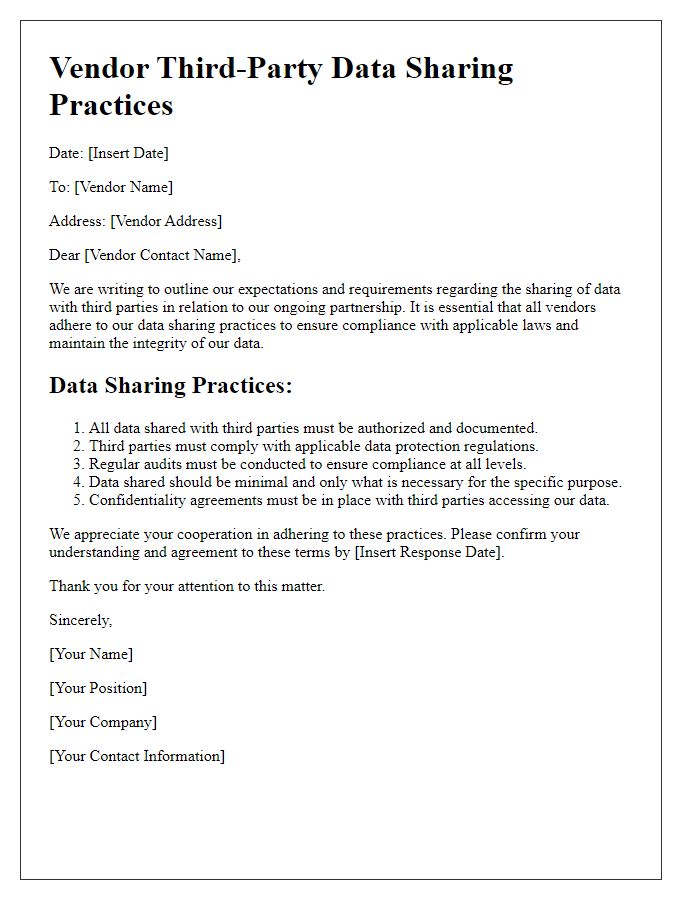
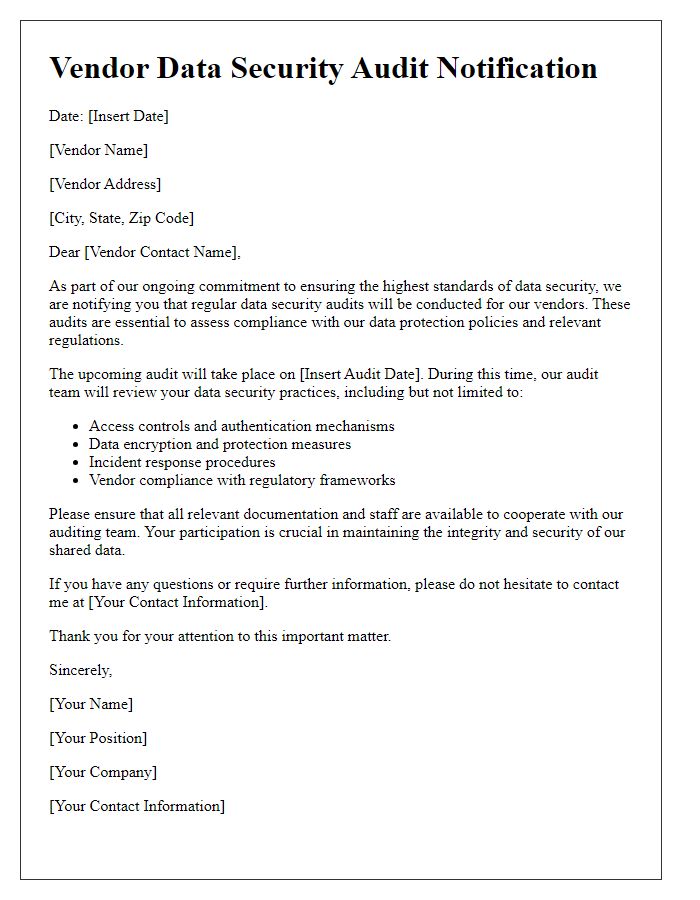
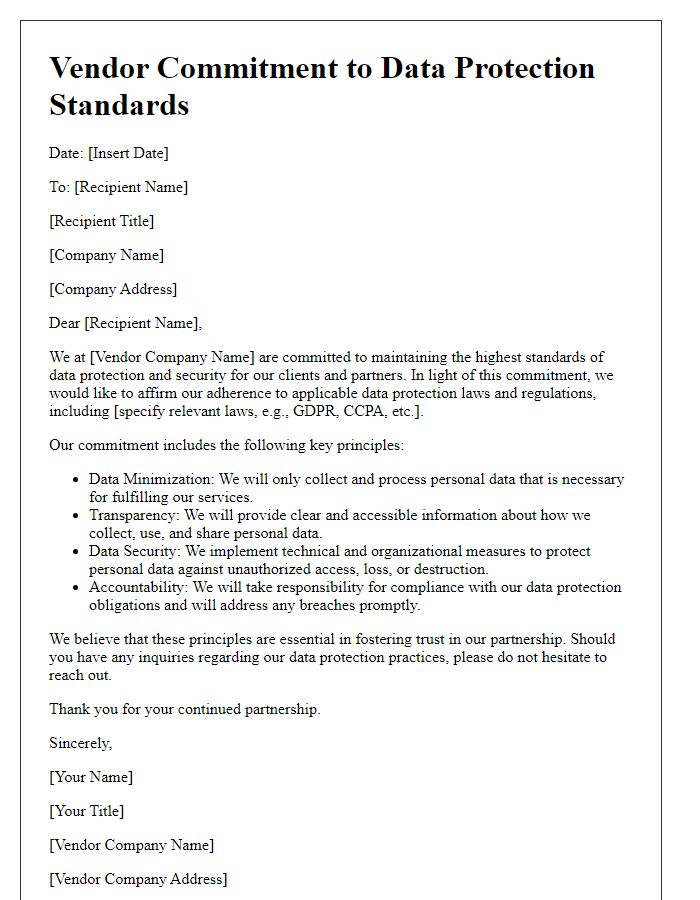


Comments